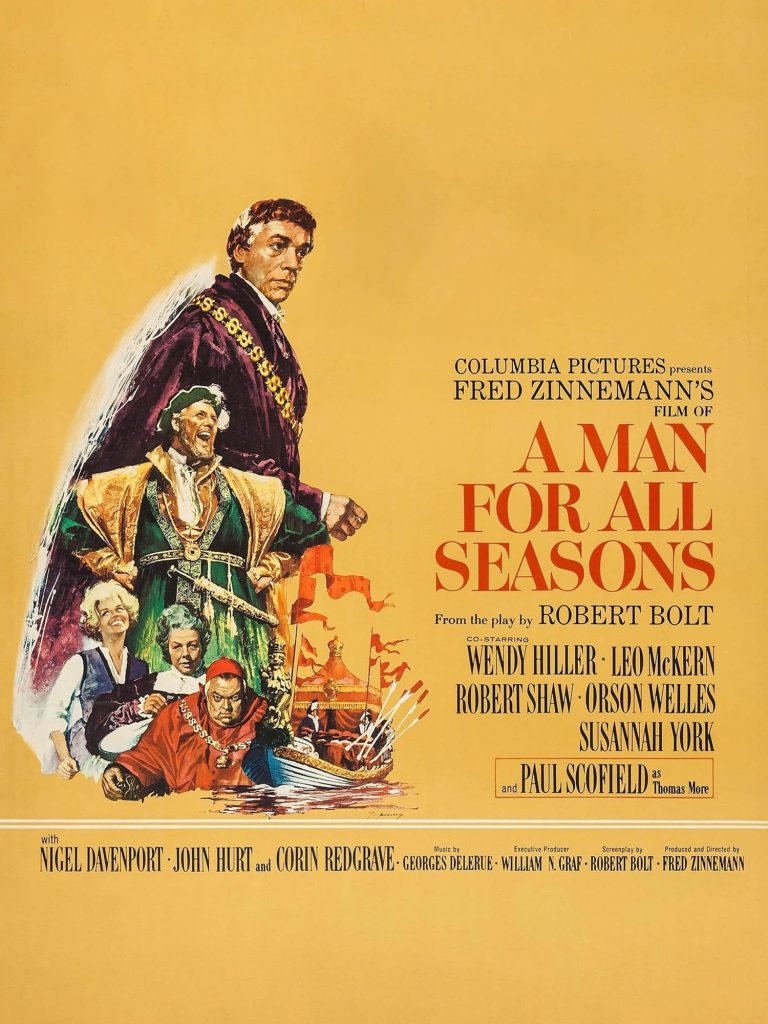

In many ways I’d say this is a Great Film, probably deserving of the full five stars. Certainly in terms of the charisma of the actors, and the splendour of the production, it’s terrific.
Story and ideas wise it depicts Thomas More as a conscientious hero; unwilling to compromise on matters of principle, at a time and in a place where to take such a stance was tantamount to suicide.
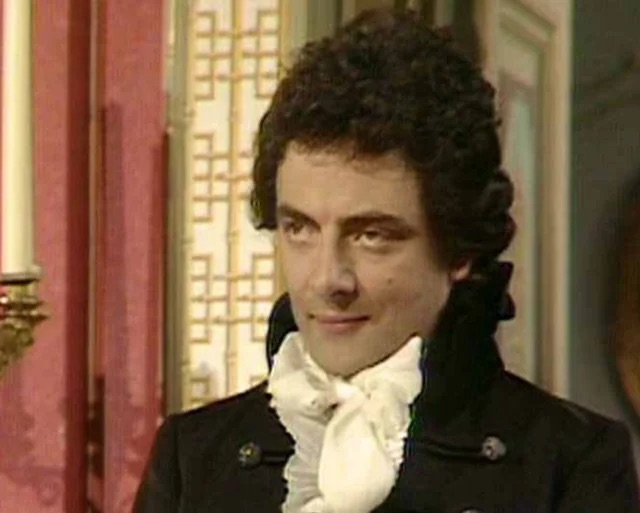
This all put me in mind of that scene in Blackadder III (‘Ink & Incapability’), in which Edmund says ‘Sir Thomas More, for instance, burned alive for refusing to recant his Catholicism, must have been kicking himself, as the flames licked higher, that it never occurred to him to say, “I recant my Catholicism.”’
Well, firstly More was beheaded, not burnt at the stake. Apparently his beheading was a merciful act on Henry VIII’s part, as the original sentence called for More to be hung, drawn and quartered!
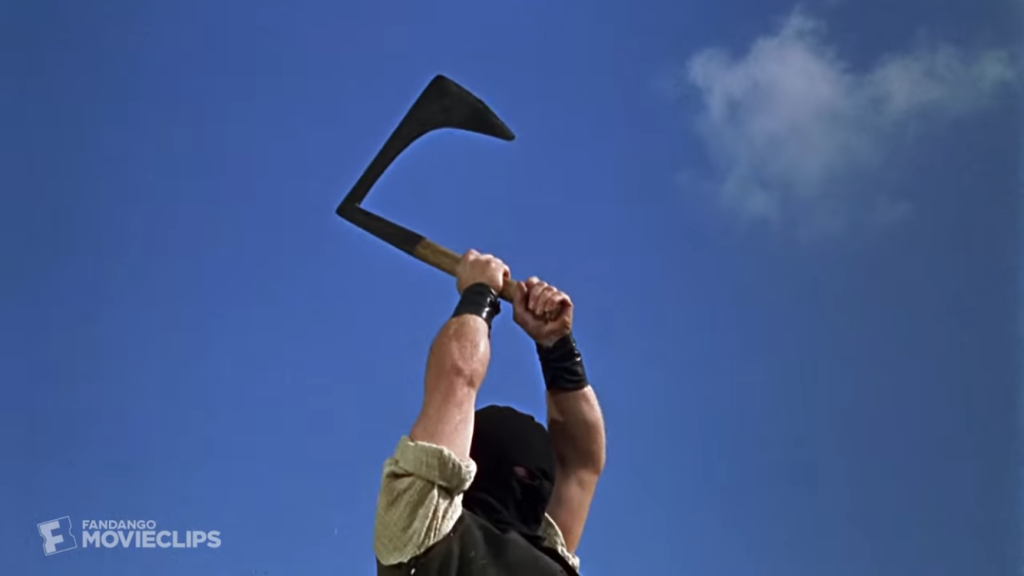
But secondly, and most fundamentally, the entire story of More, as it’s shown here, is about a man of conscience taking a moral stand.
Blackadder’s moral relativism, born of the very worldly and practical desire to survive, was of course just as strong a feature of normal human behaviour in More’s Tudor era as in any other. Witness the behaviour of his friends and contemporaries.
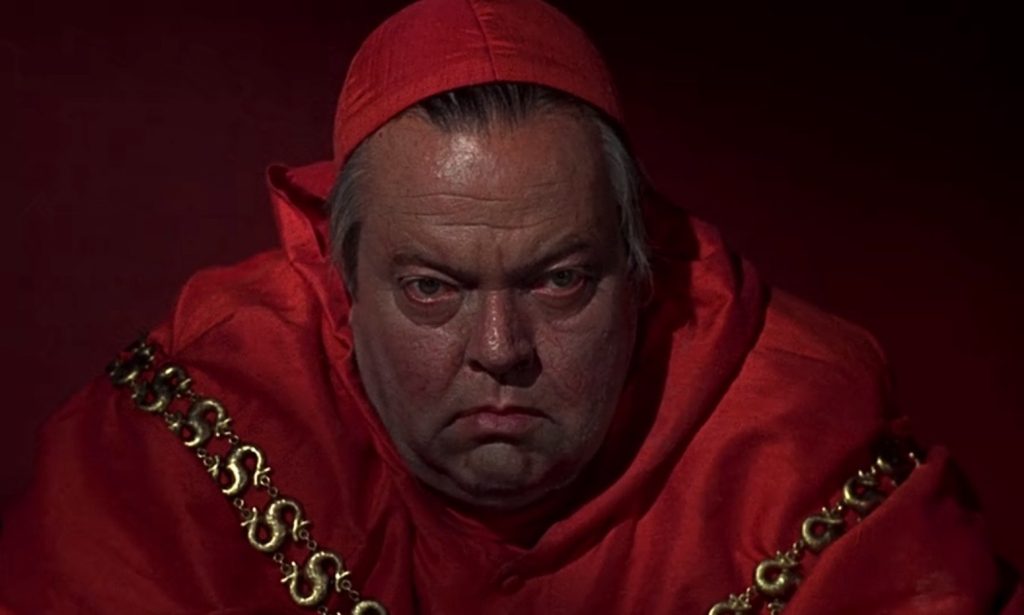
Let’s go back to the great acting we witness here. Orson Welles has a brief cameo as a vermillion Jabba The Hutt, or rather Cardinal Wolsey. Indeed, we have this film on DVD as part of an Orson Welles set.
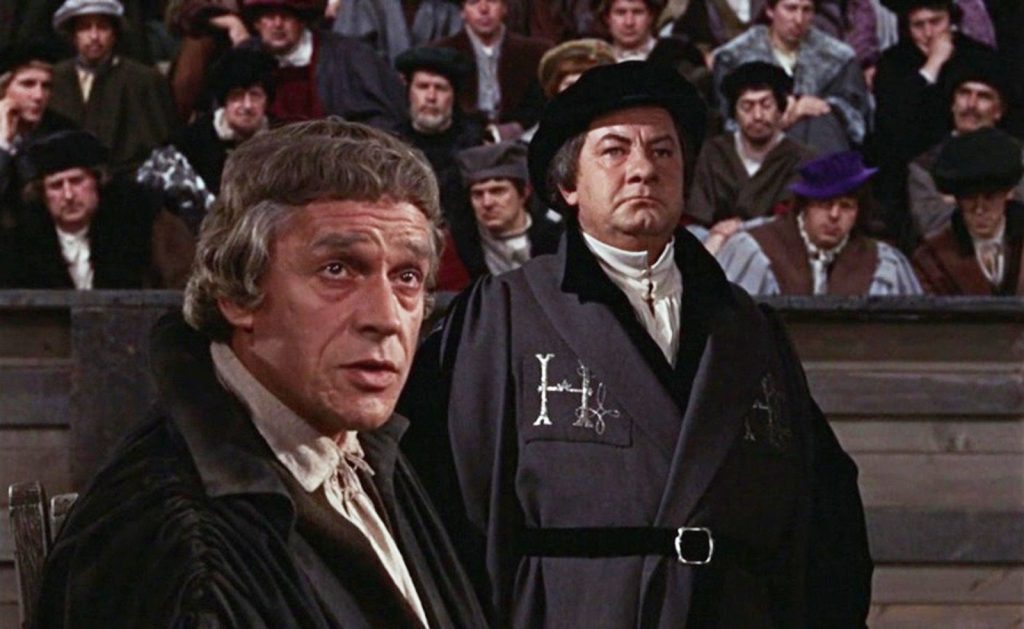
A young Richard Hurt is terrific as the initially earnest but soon all too corrupt Richard Rich. And Leo ‘Rumpole’ McKern is a much more malevolent (and frankly believable, as in less idealised) Cromwell than the version played more recently by Mark Rylance.
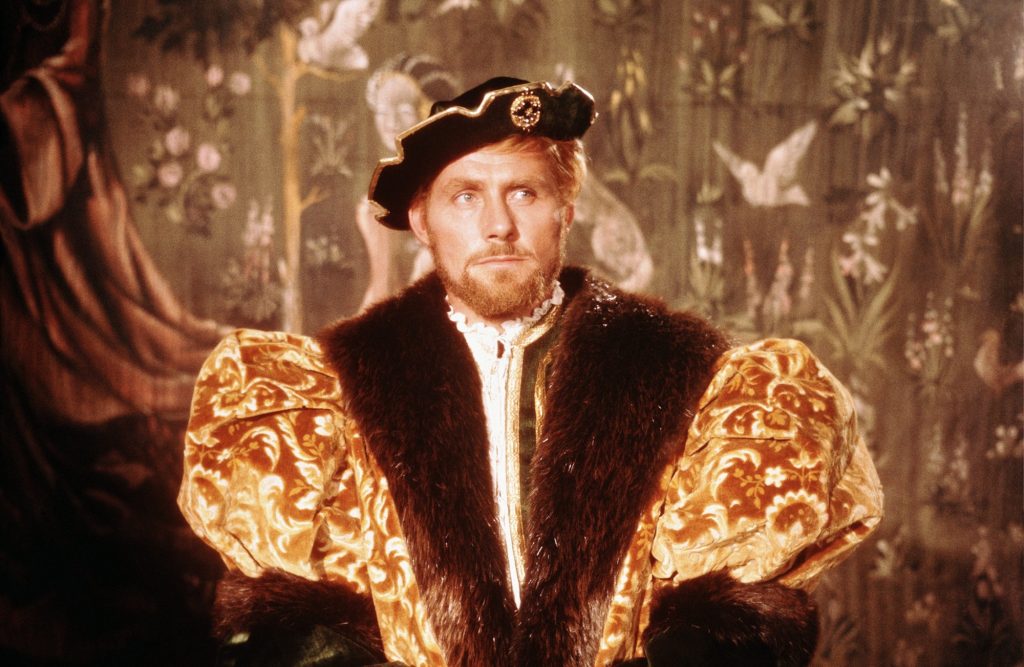
Martin Shaw is great as the unhinged and very shouty despot, Henry VIII, with his flock of sycophants. Charismatic, but volatile. Not fat enough, admittedly, but nonetheless good in the role.
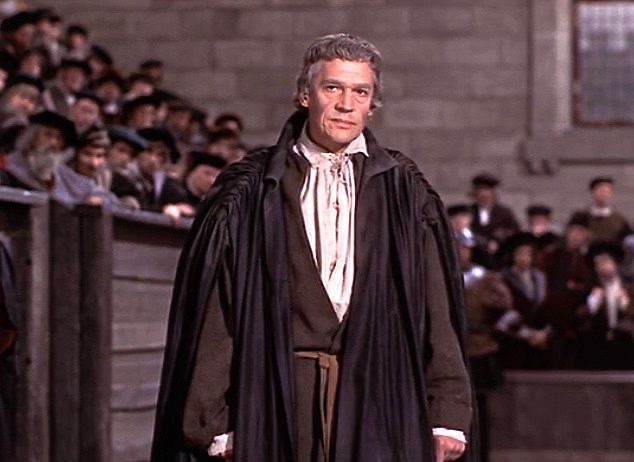
And of course there’s Paul Schofield, in the lead role. And what a performance. His declamatory style in the several eloquent soliloquies bespeaks his Shakespearean pedigree. And he can shout with the best of them, when needed.*
*Another reminder of Bl’Adder, and those two actors, in ‘Sense & Senility’.
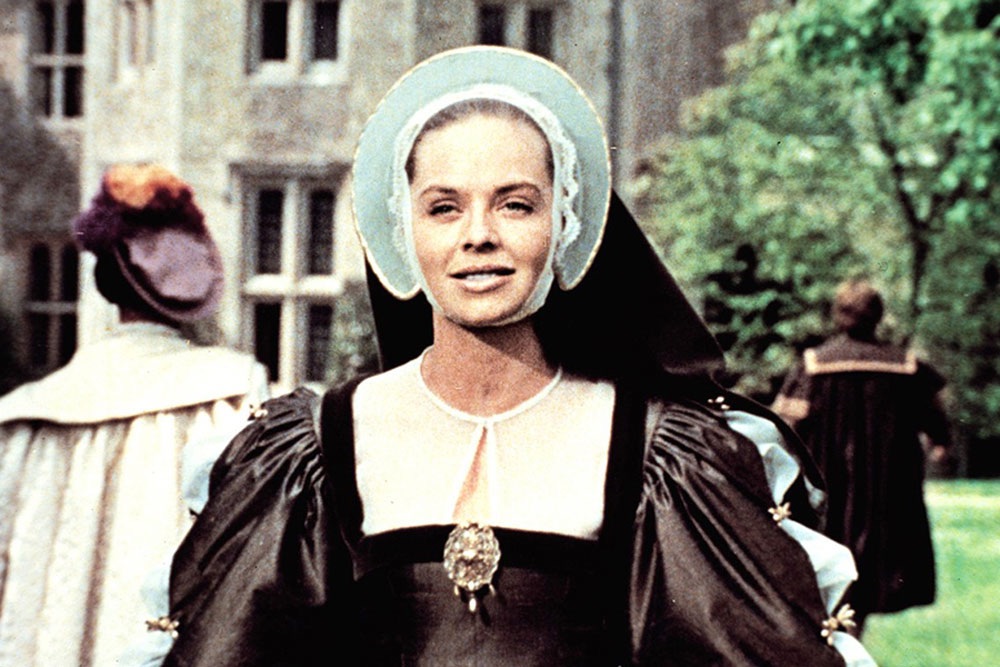
Both Susannah York as More’s daughter Meg, and Wendy Hiller, as his wife Alice, are very good as well. One of the most moving scenes is the familial farewell, in The Tower, as they attempt to get Thomas to tow the required line, and thereby ensure his survival.
The court room scene is also very, very good. Indeed, so too is the execution. In fact the whole damn thing is excellent. Watching this makes me want to read More’s Utopia. Despite recently finding his Dialogue, etc. (written whilst confined in The Tower) rather disappointing.
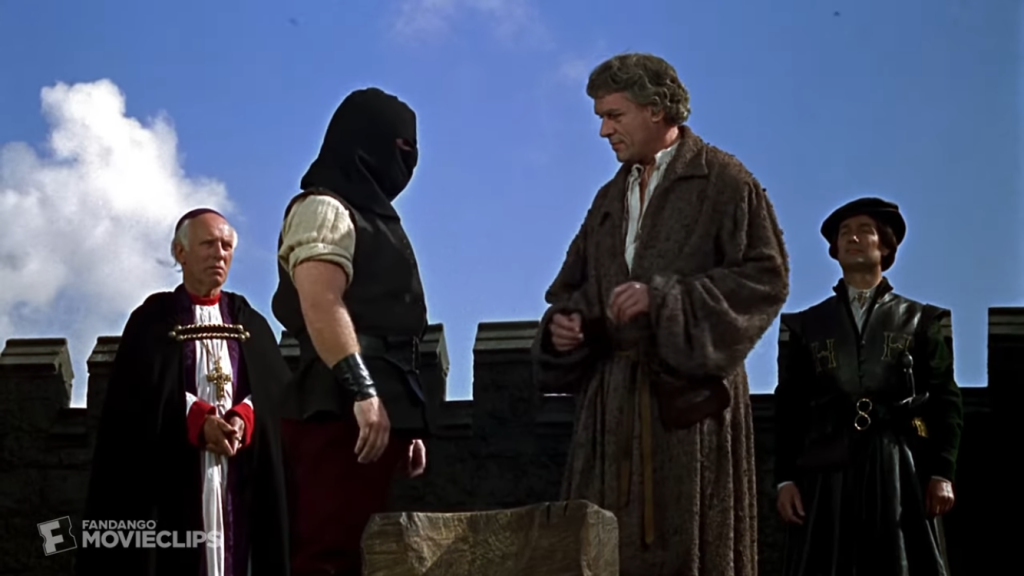
An excellent, powerful, moving film. Whose subjects, perennially fascinating – as the Wolfe Hall books and TV shows attest – remain compelling.
